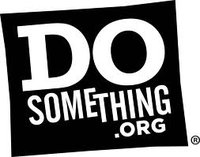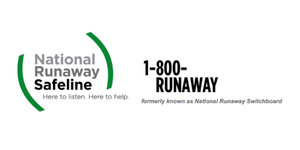Runaways
Between 1.6 and 2.8 million children runaway in America every year. (National Runaway Safeline)
Leaving and running away from home might be the only option you're thinking about right now. You may be having a tough time with your parents, under a lot of pressure fitting in, or having problems in school. You also might have a friend that is thinking about running away from home and you want to help them. It's also possible that you have already ran away from home and want to seek help and don't know what to do or expect. While many youth runaway from personal problems, many don't realize what bigger dangers are out there when living on the streets.
Possible dangers of running away
No Money - Money is required for basic necessities that your body needs such as food and water. Without money, getting theses things are harder and teens often resort to crime or get taken advantage of by adults who promise them money.
No Food - We all need food and nutrients for our body to be healthy. Without food, many become weak, lethargic and malnourished. Making the body weaker will also affect your body's immune system, therefore making it harder for your body to fight off viruses and illnesses.
Nowhere to sleep - Not having a safe place to sleep is dangerous for a runaway. Many streets are often noisy, busy and dangerous at night. Another factor is the weather, with the temperature dropping at night or heavy rain, it is also a health hazard.
No Advice - If running away alone, many don't have someone that they can turn to in time of need or advice. You many find yourself in a situation that you need help or advice about before putting yourself in danger.
Crime - With no money or food, many runaways and homeless turn to crime. Theft is a common crime because they can sell the items for money.
Substance Abuse - Many turn to drugs and alcohol as a way to try and escape from their problems. Substance abuse and addiction also needs to be funded by money, which some turn to crime to pay for their dependency. Not only can substance abuse lead to crime, but it is also very dangerous for ones health.
Questions that you may want to ask yourself before running away:
What else can I do to improve my living situation before I leave?
What would make me stay at home?
How will I survive on my own?
Is running away safe?
Who can I count on to help me?
Am I being realistic about the situation?
Have I given this enough thought?
What are my other options and alternatives?
If I end up in trouble, who will I call?
When I return home, what will happen?
If you find yourself or a friend facing this issue, please reach out to a trusted adult or call the National Runaway Safeline, where support and help is available!
National Runaway Safeline
Call 1-800-RUNAWAY if you are a teenager who is thinking of running from home, if you have a friend who has run and is looking for help, or if you are a runaway ready to go home.
Call 1-800-RUNAWAY if you care about a teenager and want information on how you can help someone who may be at risk of running from home.
Call 1-800-RUNAWAY if you are a teacher looking for information to pass along to your students about youth homelessness or the reality of life on the streets.
Our 24-hour crisis line has an experienced front-line team member ready to help you now. If you're not ready to call, you can post to our bulletin board, send an email, or start a live chat. It’s anonymous, confidential and free.
Youth Outreach
Youth Outreach (YO!) serves as a safe haven for homeless youths, offering medical care, social services and non-judgmental support.
Waikiki Health
(808) 942-5858
415 Keoniana Street
Honolulu, HI 96815
Hours of Operation
Monday, Tuesday & Thursday
Drop-In Center: 3:00pm-6:00pm
Monday & Thursday
Clinic: 3:00pm-6:00pm
Monday, Tuesday & Thursday
GED Classes: 1:30pm-3:00pm
Hale Kipa
(808) 942-5858
Maui Youth & Family Services
Maui Youth and Family Services empowers youth and families, and provides a safe place for Maui’s homeless, abused and runaway children. They also have behavioral and mental health programs to support young people and their families’ personal growth and emotional stability. For people who are homeless, at risk of becoming homeless, in foster care, have aged out of foster care, or are not able to receive care in their own home, Maui Youth & Family Services work to create support and guidance so that one can achieve positive change in their social, behavioral, academic, health, and family lives.
Check out their home page here: https://mbhr.org/about-maui-youth-family-services/ for more information!
Hawaii & National Facts and Statistics
75% of homeless or runaway youth have dropped out or will drop out of school.
One in seven young people between the age of 10 and 18 will run away.
Youth ages 12 to 17 are more at risk of homelessness than adults.
Runaway and homeless youth have high rates of sexually transmitted infections and pregnancy. This is due to the results of sexual exploitation, unsafe sex practices, and sexual assault.
75% of runaways are female.
46% of runaway and homeless youth reported being physically abused, 36% being emotionally abused, and 17% reported being forced into unwanted sexual activity by a family or household member.







